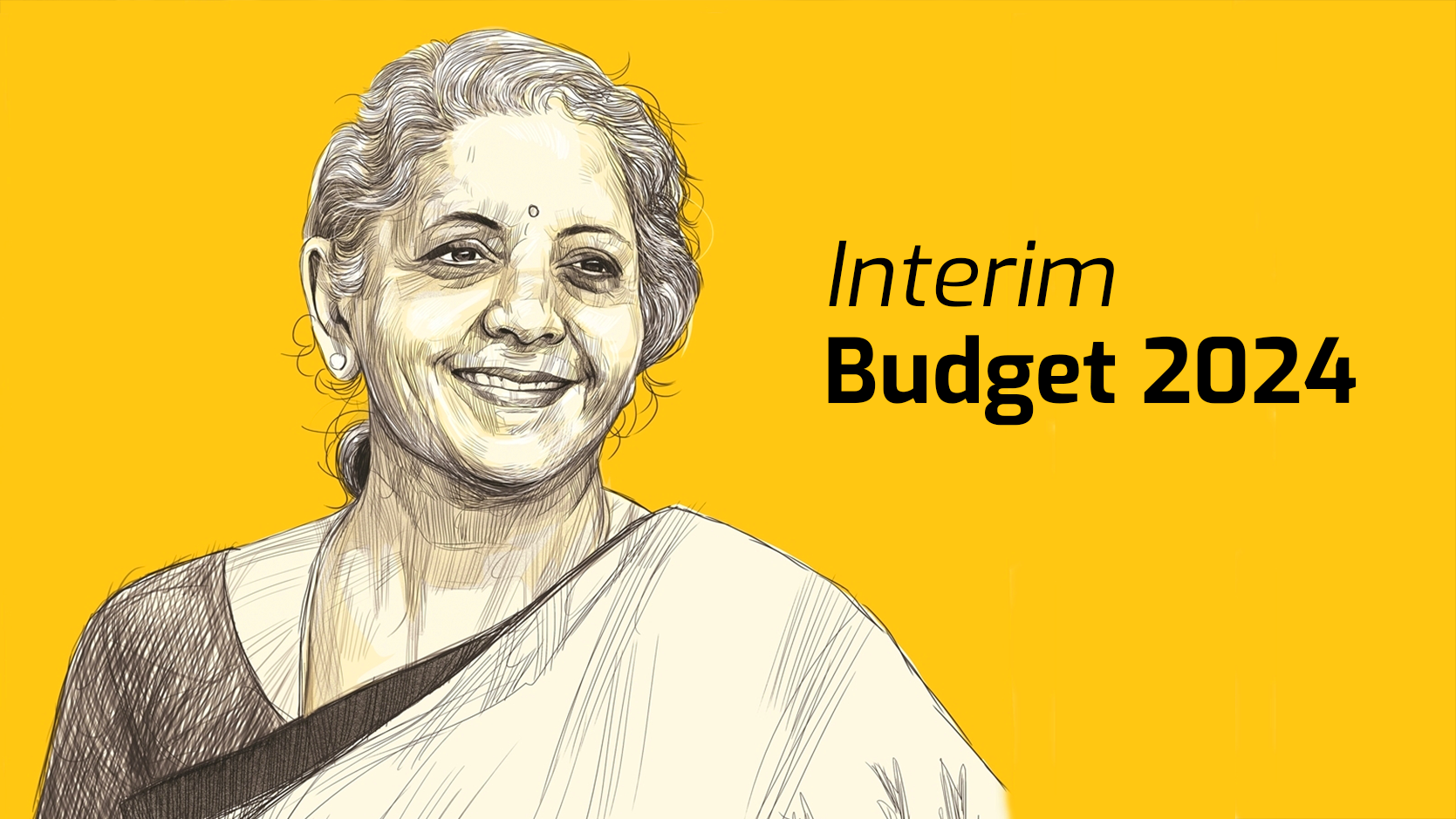Delhi breathes its worst quality air of the season; smog blanket leads to disruptions at airport
Why in News?
Delhi, the capital of India, faced its worst air quality of the season on 13th November 2024, as the city was enveloped in a thick blanket of smog.
Introduction
The air quality index (AQI) reached the “severe” category, prompting authorities to issue health advisories and reconsider measures for curbing pollution. This pollution spike has had significant implications for public health, transportation, and governance, especially as winter sets in with the associated drop in temperature and reduced wind speeds.
Key Developments
- Air Quality Levels: The AQI in Delhi reached the ‘severe’ category (401-450), with PM2.5 levels 19.4 times above the WHO’s limit. This poses health risks even to healthy individuals, with severe impacts on those with respiratory conditions, prompting warnings from the CPCB about potential health complications.
- Meteorological Factors: Low wind speeds and falling temperatures in winter, along with stubble burning and firecracker use, significantly contribute to pollution spikes in Delhi. On 12th November 2024, stubble burning accounted for 17.8% of PM2.5 levels, a decrease from 35.1% on 1st November, but it remains a major pollution source.
- Air Traffic Disruptions: The thick smog caused a drastic reduction in visibility. Around 8:30 AM on 13th November, visibility dropped to zero in many parts of Delhi, affecting air traffic at Indira Gandhi International (IGI) Airport. The visibility on runways dropped to 50 meters, leading to the diversion of six flights to Jaipur and one to Lucknow.
- Government and Institutional Response: The Commission for Air Quality Management (CAQM) opted not to implement stricter measures, instead monitoring the situation. The government has enforced restrictions on diesel generators and dust control measures. The Graded Response Action Plan (GRAP) remains in place, but Stage III, which imposes severe restrictions, has not yet been activated.
Public Health Impacts
Prolonged exposure to pollutants in the “severe” category can lead to respiratory and cardiovascular diseases, especially among vulnerable populations such as children, the elderly, and people with pre-existing health conditions. The AQI in the ‘severe’ category significantly affects people with asthma, bronchitis, and other respiratory disorders.
Implications for Governance
The political environment surrounding air quality issues in Delhi has been marked by criticism of the ruling Aam Aadmi Party (AAP). Opposition parties, particularly the BJP, have demanded immediate measures, including the closure of primary schools and advisories for the elderly and children to stay indoors. In 2023, schools in Delhi were shut for a week as a response to the deteriorating air quality, reflecting the gravity of the situation.
Conclusion
Delhi’s air quality crisis highlights the environmental challenges faced during winter, exacerbated by meteorological conditions and external factors like stubble burning. Despite government efforts to control pollution, long-term solutions require a collaborative approach involving all stakeholders to ensure public health and sustainability.
Tables and Key Facts:
| Pollutant | Level on 13th Nov 2024 | WHO Permissible Limit | Excess Over Limit |
|---|---|---|---|
| PM2.5 | 291.1 µg/m³ | 15 µg/m³ | 19.4 times |
Category AQI Range
| Category | AQI Range | Health Impact |
|---|---|---|
| Very Poor | 301-400 | Breathing discomfort; health impact on vulnerable groups |
| Severe | 401-450 | Serious health impact on all, especially vulnerable groups |
The perfect cocktail of layered discrimination
Why in News?
Delimitation has been delayed in the past, but with shifting demographics, it could significantly alter the political landscape.
Introduction
Delimitation, the redrawing of electoral constituencies based on population data, is a key issue in India’s democratic and federal framework. It raises concerns about the balance of power among states, political representation, and governance.
What is Delimitation?
Delimitation is the process of redrawing electoral boundaries based on population data from the Census, as mandated by Article 82 of the Indian Constitution. The last delimitation was based on the 1971 Census, with two 25-year freezes—first in 1976 by Indira Gandhi and later in 2001 by Atal Bihari Vajpayee. The freeze is set to end in 2026, and the current government has suggested a possible delimitation before the 2029 elections.
The Threat of Delimitation
Delimitation is contentious due to regional differences in the Total Fertility Rate (TFR). States like Kerala, Tamil Nadu, and West Bengal, with TFRs below the replacement level, face population decline, while Hindi heartland states such as Bihar, Uttar Pradesh, and Madhya Pradesh have higher TFRs. This could result in southern states losing Lok Sabha seats, while Hindi-speaking states gain more representation.
Impact on Federal Balance
India’s federal structure, based on linguistic and ethnic diversity, faces challenges due to demographic shifts. Southern states like Tamil Nadu, Kerala, and Maharashtra, with declining populations, will lose political representation in delimitation, while Hindi-speaking states like Uttar Pradesh, Bihar, and Madhya Pradesh will gain. This could skew national politics, favoring the Hindi heartland, and exacerbate regional inequalities, fueling ethno-linguistic tensions.
Challenges and Opportunities
India’s democratic framework is built on a delicate balance of federalism and democracy, where no single ethnic or linguistic group is a majority. If delimitation leads to the marginalization of non-Hindi states, it could undermine the principle of federalism. The potential concentration of political power in the Hindi heartland could lead to tensions, further alienating the southern and eastern states.
Possible Solutions
Several strategies can address these imbalances and safeguard India’s federal fabric:
- Extend the Freeze on Delimitation:
- Extend the current freeze on delimitation by another 25 years, as done by past governments, to allow a future generation to handle the issue.
- Permanently Freeze Delimitation:
- A permanent freeze on the redistribution of seats across states, thus preserving the current distribution of seats.
- Comprehensive Federal Reforms:
- Implement delimitation but simultaneously introduce reforms in the federal structure, such as abolishing the Concurrent List and expanding the State List to give states greater autonomy in policy-making. This would balance the impact of delimitation by decentralising powers.
- Increase Seats in Developed States:
- To offset the negative effects of population explosion in some states, increase the number of Lok Sabha seats in developed states like Kerala, Tamil Nadu, and Maharashtra while maintaining the existing proportional representation.
Conclusion
India’s unique federalism is under threat from potential changes to the delimitation process. If the imbalance between states based on demographic differences continues, it could lead to a dangerous shift towards ethno-linguistic majoritarianism. To preserve the unity and integrity of India’s diverse social fabric, it is crucial to find a balance between the principle of equality in representation and federalism. India’s democracy must ensure that all regions, regardless of population size, continue to have a meaningful say in national affairs.
The CKM syndrome as the price of modernity
Why in News?
Cardiovascular Kidney Metabolic (CKM) syndrome is a growing global health issue, emerging as a silent, complex epidemic resulting from unhealthy lifestyles and the influence of globalization.
Introduction
Cardiovascular Kidney Metabolic (CKM) syndrome is a growing global health issue, emerging as a silent, complex epidemic resulting from unhealthy lifestyles and the influence of globalization. The syndrome involves a cascade of health problems starting with obesity and leading to complications in major organs like the heart, kidneys, and blood vessels. This increases the risk of premature death.
Current Health Trends in Tamil Nadu
Tamil Nadu, despite having a strong public health infrastructure, is facing a rise in non-communicable diseases (NCDs). The Global Burden of Disease (GBD) report highlights that NCDs now account for 69% of premature deaths and 68% of disability-adjusted life years (DALYs). The 2020 Tamil Nadu STEPS survey found that 28.5% of the population was overweight, 11.4% obese, 33.9% had hypertension, and 17.6% had diabetes. These trends mirror national figures, with India having a diabetes prevalence of 16.1% and obesity at 40.3%, exacerbated by low awareness and poor management, particularly in poorer communities.
Health Economics: The Financial Burden of CKM
Tamil Nadu spends about ₹1,200 crore annually on insurance premiums under the Chief Minister’s Comprehensive Health Insurance Scheme (CMCHIS), which covers 1.4 crore families. A large portion of claims is due to coronary angioplasty and dialysis—both consequences of CKM syndrome. The rising incidence of NCDs is not only a health crisis but a growing economic burden, as private health insurance premiums rise in response.
The Need for Integrated Care Models
The American Heart Association advocates for integrated care for CKM, urging the simultaneous management of diabetes, hypertension, and heart disease by a multidisciplinary team. This approach, involving diabetologists, cardiologists, nephrologists, dieticians, and physiotherapists, can improve patient outcomes and reduce healthcare fragmentation. Public health hospitals can expand this model through medical training and implementation at primary and secondary care levels. Tamil Nadu has already initiated programs like the Muthu Lakshmi Reddy scheme, which provides pregnant mothers with nutrition kits and cash transfers to address low birth weight, a precursor to CKM conditions.
Preventative Measures: Addressing Diet and Lifestyle
Since the 1960s, rice has been a staple in Tamil Nadu’s Public Distribution System (PDS), but its high glycemic index has contributed to rising obesity rates. Replacing rice with millets and common salt with low-sodium salt could improve health outcomes, though caution is needed for those with heart or kidney issues. Globalization’s impact on health is seen in long work hours and night shifts, which disrupt hormone regulation and encourage unhealthy eating habits, contributing to metabolic disorders. Regulating work hours could be a key public health intervention alongside medical treatments.
Conclusion: A Call to Action
The rising prevalence of CKM syndrome in Tamil Nadu and India highlights the need for a shift to integrated healthcare. Addressing socioeconomic and lifestyle factors through coordinated efforts in health policy, awareness campaigns, and lifestyle changes can reduce the burden on public health systems and improve quality of life.
Why is there discontent in Maharashtra?
Why in News?
Maharashtra has seen growing discontent due to socio-political factors such as caste-based reservations, economic inequalities, and the concentration of political power within the Maratha community through cooperatives. While Marathas hold significant economic and political influence, internal divisions, factionalism, and shifting alliances have fueled dissatisfaction. Additionally, issues like unemployment, agricultural distress, and limited opportunities for marginalized groups have exacerbated the sense of exclusion.
1. The Cooperative Model and Maratha Dominance
Maharashtra’s cooperative network, especially in banking, sugar, and dairy, has strengthened Maratha political power by controlling resources like employment, local governance, and agricultural markets. While this system has secured loyalty from Maratha supporters, it has marginalized non-Maratha communities, concentrating economic and political power within the Maratha elite. This has led to disparities, limited opportunities for other groups, and heightened social tensions, fueling discontent.
2. The Demand for Reservations: Socio-Economic Hardships
Despite Maratha political dominance, economic challenges like agricultural distress and unemployment have led to demands for Maratha reservations in education and employment. Large-scale protests, including the 2016 “Maratha Mook Morchas,” have intensified this issue. However, OBC communities fear that Maratha inclusion in the OBC category could dilute their reservation benefits. The BJP has capitalized on these concerns, positioning itself as a defender of OBC interests to gain support in Maharashtra.
3. Factionalism and Dynasty Politics
Maharashtra’s political landscape is marked by internal factionalism within the Maratha community, driven by sub-regional loyalties, personal rivalries, and political affiliations, weakening their collective bargaining power. Additionally, dynasty politics, where power is concentrated in a few influential families, has stifled new leadership and reinforced a sense of stagnation, particularly in regions like Nandurbar.
4. BJP’s Counter-Mobilization of OBCs
The BJP has strategically mobilized OBCs to counter the Maratha demand for reservations, aligning with OBC leaders and opposing Maratha inclusion in the OBC quota. Through caste-based strategies and welfare policies, the BJP has expanded its support among OBCs, advocating for sub-categorization within the OBCs to ensure fair distribution of reservation benefits.
5. Dalit Politics in Maharashtra
Dalit politics in Maharashtra, influenced by leaders like Jyotirao Phule, B.R. Ambedkar, and Chhatrapati Shahu Maharaj, has been marked by fragmentation and shifting alliances. Parties like the RPI and VBA have advocated for Dalit rights, but the vote bank remains divided. The VBA, led by Prakash Ambedkar, has focused on consolidating Dalit, Buddhist, and Muslim votes, but has struggled to form a unified political force, despite some success in the 2019 Lok Sabha elections.
6. Sub-Classifications and Electoral Dynamics
The issue of sub-classification within the Scheduled Castes (SCs) has also gained prominence in Maharashtra. The NDA bloc, led by the BJP, has supported sub-classification to consolidate Hindu SC votes, while the Congress has remained largely silent on the issue. This issue has further fragmented Dalit politics and deepened the divisions within the community, influencing the broader political landscape.
Key Electoral Issues in Maharashtra
- Caste-based reservations: The demand for reservations from Marathas and the growing resentment among OBCs.
- Agricultural distress and unemployment: Contributing to socio-economic challenges, particularly in rural Maharashtra.
- Factionalism and dynasty politics: Hindering the development of new leadership.
- Dalit rights and political representation: Fragmentation of Dalit politics and struggles for better representation.
- BJP’s OBC strategy: The BJP’s role in countering Maratha reservation demands and consolidating OBC support.
State of the Climate 2024 Report (WMO)
Release Details:
The State of the Climate 2024 report was released by the World Meteorological Organization (WMO) during the UN Climate Conference (COP29) in Baku.
2024 Global Temperature:
On track to be the warmest year on record with 1.54°C above pre-industrial levels from January to September 2024, influenced by El Niño.
Warmest Decade:
The decade from 2015-2024 is projected to be the warmest on record.
Ocean Warming:
Oceans have been warming at an accelerating rate, particularly in the past 20 years, and will continue to heat irreversibly.
Greenhouse Gas Emissions:
- 2023 recorded the highest levels of greenhouse gas emissions.
- Carbon dioxide levels increased by 51% from 1750 to 2023.
Impact on Oceans:
- Oceans absorb 90% of excess heat from global warming.
- In 2023, oceans reached record heat levels, continuing the trend into 2024.
Glacier Melting:
- Accelerating ice loss from glaciers globally, with 2023 showing the fastest glacier recession in 70 years.
- Glaciers lost an amount equivalent to five times the volume of the Dead Sea.
Sea-Level Rise:
From 2014-2023, global mean sea level increased at a rate of 4.77 mm per year, more than double the rate between 1993 and 2002.
Booker Prize
Overview:
The Booker Prize is one of the world’s most prestigious literary awards, given annually for a single work of fiction.
History:
Founded in 1969 in the UK, initially limited to Commonwealth writers, it is now open to authors worldwide, irrespective of nationality.
Eligibility Criteria:
- Awarded to novels originally written in English and published in the UK or Ireland during the prize year.
- Self-published novels are not eligible.
- The novel must be an original work in English (translations are excluded).
Prize Details:
- Winner’s reward: £50,000.
- Shortlisted authors: £2,500 each.
Booker Prize Foundation:
Established as a charity in 2002, it manages both the Booker Prize for Fiction and the Man Booker International Prize, introduced in 2005.
Walking Pneumonia
Overview:
Walking pneumonia is a type of atypical pneumonia, primarily caused by the bacteria Mycoplasma pneumoniae, though other bacteria and viruses can also be responsible.
Symptoms:
Symptoms are often mild, resembling a common cold, such as cough, sore throat, low-grade fever, and fatigue.
Why “Walking Pneumonia”?
It is termed “walking pneumonia” because it is less severe than typical pneumonia, allowing individuals to continue daily activities.
Transmission:
Transmission occurs through airborne droplets from close contact, such as coughing, sneezing, or speaking.
Treatment:
Although often not serious, walking pneumonia can linger for weeks and may require antibiotics for treatment in some cases.
Silent Pneumonia:
It is sometimes referred to as “silent pneumonia” due to the possibility of no symptoms, despite X-ray findings showing fluid-filled air sacs in the lungs.
Wildlife Institute of India (WII)
Overview:
Established in 1982 under the Ministry of Environment, Forests, and Climate Change, Government of India, located in Dehradun, Uttarakhand, adjacent to Rajaji National Park.
Objectives:
- Enhance scientific knowledge on wildlife resources.
- Provide training for wildlife conservation and management at various levels.
- Conduct research to develop techniques for wildlife management in Indian conditions.
- Collaborate with international organizations for wildlife research and training.
- Develop as a regional center for wildlife conservation.
Research Areas:
- Biodiversity, endangered species, wildlife management, forensic wildlife research, eco-development, spatial modeling, and studies related to climate change.
Governing Board:
Chaired by the Union Minister and includes representatives from the Centre, state governments, and academic institutions.
World Intellectual Property Indicators
India’s Position in Global IP Rankings:
India ranks in the global top 10 for patents, trademarks, and industrial designs.
Growth in Patent Applications:
- India recorded the fastest growth in patent applications in 2023 (+15.7%) among the top 20 economies.
- India ranks 6th globally in patent applications with 64,480 filings.
- Resident filings accounted for 55.2% of all patent submissions in India in 2023.
Industrial Design Applications:
- India witnessed a 36.4% rise in industrial design applications in 2023.
- The Textiles and Accessories, Tools and Machines, and Health and Cosmetics sectors led the way in design filings.
Trademark Filings:
- India ranked 4th globally in trademark filings with a 6.1% increase in 2023.
- Around 90% of India’s trademark filings were by residents.
- India’s trademark office holds the second-largest number of active trademark registrations globally (over 3.2 million).
Patent-to-GDP Ratio:
India’s patent-to-GDP ratio grew significantly from 144 to 381 over the past decade, reflecting the country’s expanding intellectual property activity alongside its economic growth.
Global Patent and Trademark Trends:
- Global patent applications in 2023 reached a record of 3.55 million.
- Top contributing countries: China, United States, Japan, South Korea, and India.





